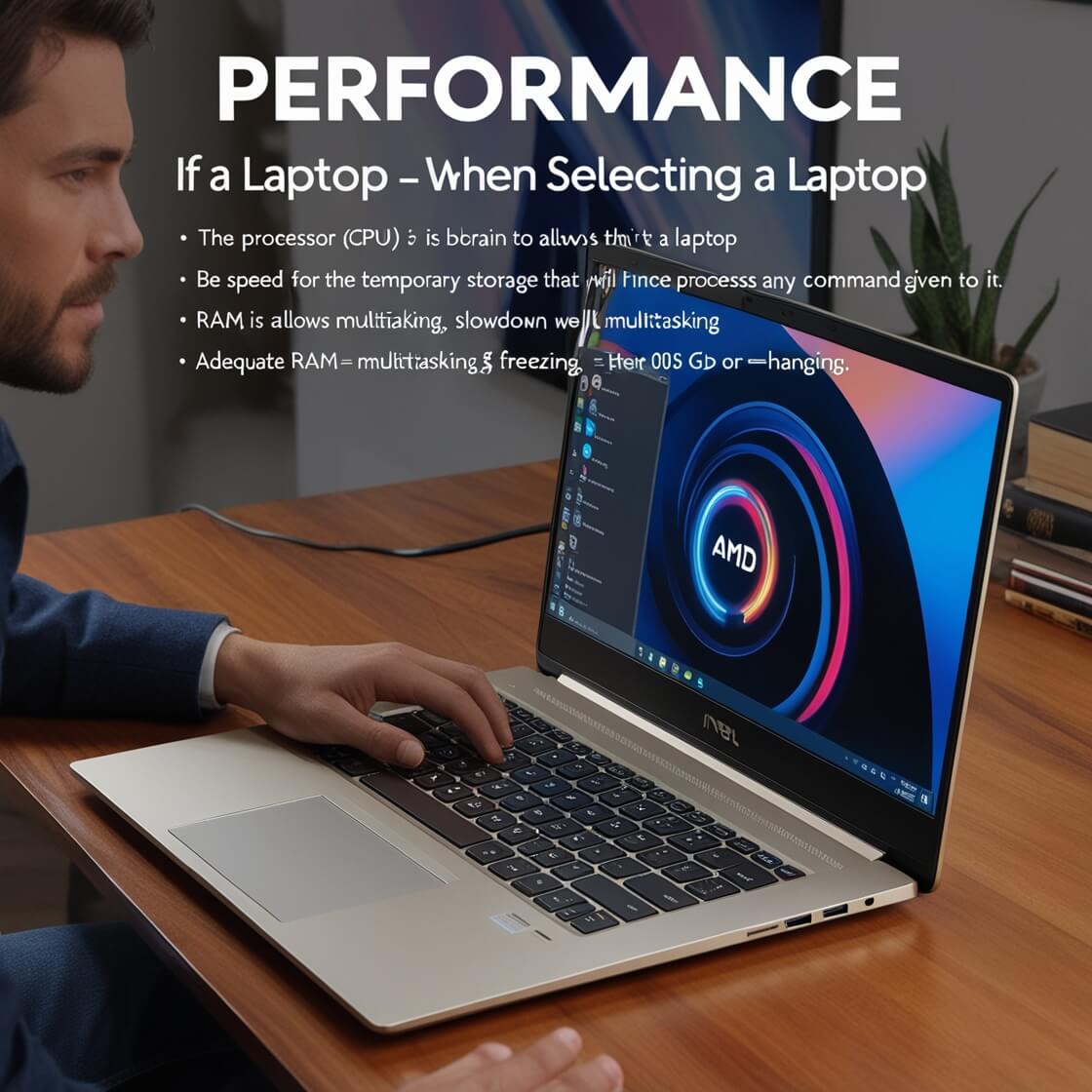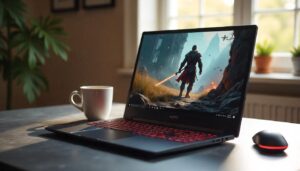Selecting the perfect laptop can be a daunting task with the many options available on the market today. The features of the laptop should be highly considered when selecting a laptop, which always depends on its purpose, especially when it comes to graphic design, video editing, or programming. That is why we highlight the key features that will guide you in choosing a better laptop.
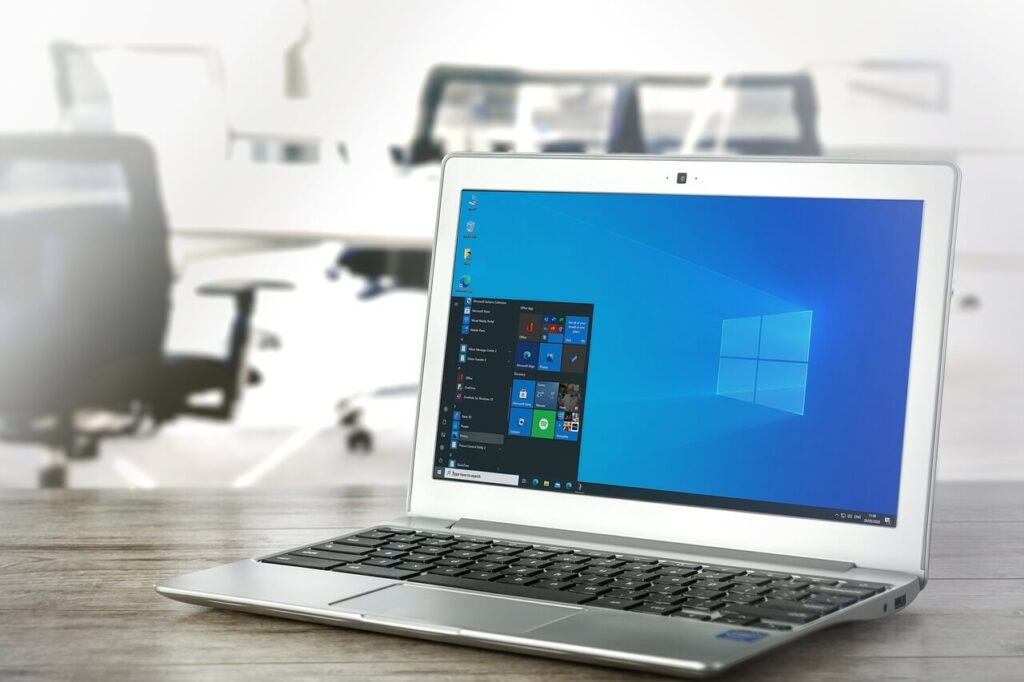
The Features are:
1. Performance
Performance is paramount when selecting a laptop. If the performance of a laptop is poor, it becomes very frustrating that you won’t be able to use it well. The processor (CPU) is the brain of the laptop and allows it to think and process any command given to it. There are different models and brands of processors, such as Intel, AMD, and so on. The speed of the processor needs to be considered, and RAM is the temporary storage that allows multitasking. Adequate RAM allows multitasking without freezing, slowdown, or hanging. Note that every system is designed for a certain amount of RAM, which must not be exceeded, and this applies to the processor as well.

2. Storage
The storage of the laptop are very important because that is where every piece of data or information, such as pictures, videos, documents, music, applications, etc., is stored. The storage of a laptop is of different sizes (gigabytes), and solid-state drives (SSDs) are the modern storage drives with faster speeds and durability, while HDD hard disk drives (HDDs) are not as fast and durable as solid-state drives (SSDs), but they are very cheap and common compared to solid-state drives (SSDs).

3. Display
The display of a laptop comes in different sizes and resolutions (1080p Full HD or 4K Ultra HD), screen size (13-inch to 17-inch), and display quality (brightness, color accuracy, and viewing angles). A high-quality display enhances visual performance.

4. Battery Life
Look for laptops with long-lasting batteries that can sustain a full day’s work or leisure activities without frequent recharging. Battery life varies by manufacturer and usage scenario.

5. Portability
Both the weight and dimensions of the laptop are very important. A lightweight and compact laptop is easier to carry around, making it ideal for travelers, students, and professionals who need mobility. Strike a balance between portability and screen size to find a laptop that suits your lifestyle.

6. Build Quality
To guarantee longevity and durability, get a laptop with a strong build. Compared to plastic frame materials, premium materials such as aluminum or magnesium alloy offer superior resistance to wear and tear. Additionally, assess the keyboard and trackpad for comfort and responsiveness, as they directly impact daily usability.

7. Connectivity
Examine the connectivity options on the laptop to make sure your accessories and peripherals work with it. The SD card reader, HDMI, USB Type-A and Type-C, and headphone jack are all necessary ports. The combination of built-in Wi-Fi and Bluetooth enables seamless internet access and device pairing through wireless connectivity.

8. Operating System
Select an operating system based on your software needs and personal preferences. Windows is versatile and works well with a wide range of applications, making it ideal for both work and play. The user-friendly interface and smooth integration of macOS with other Apple products make it a preferred choice. Because of its open-source software ecosystem and customization options, Linux is a popular choice among tech enthusiasts and developers.

9. Graphics
The laptop’s graphics processing unit (GPU) should be taken into consideration if you work on graphic-intensive projects like gaming, graphic design, or video editing. When it comes to demanding applications, dedicated GPUs offer better performance than integrated graphics for daily tasks. Depending on your particular workload, choose a laptop with sufficient graphics processing power.
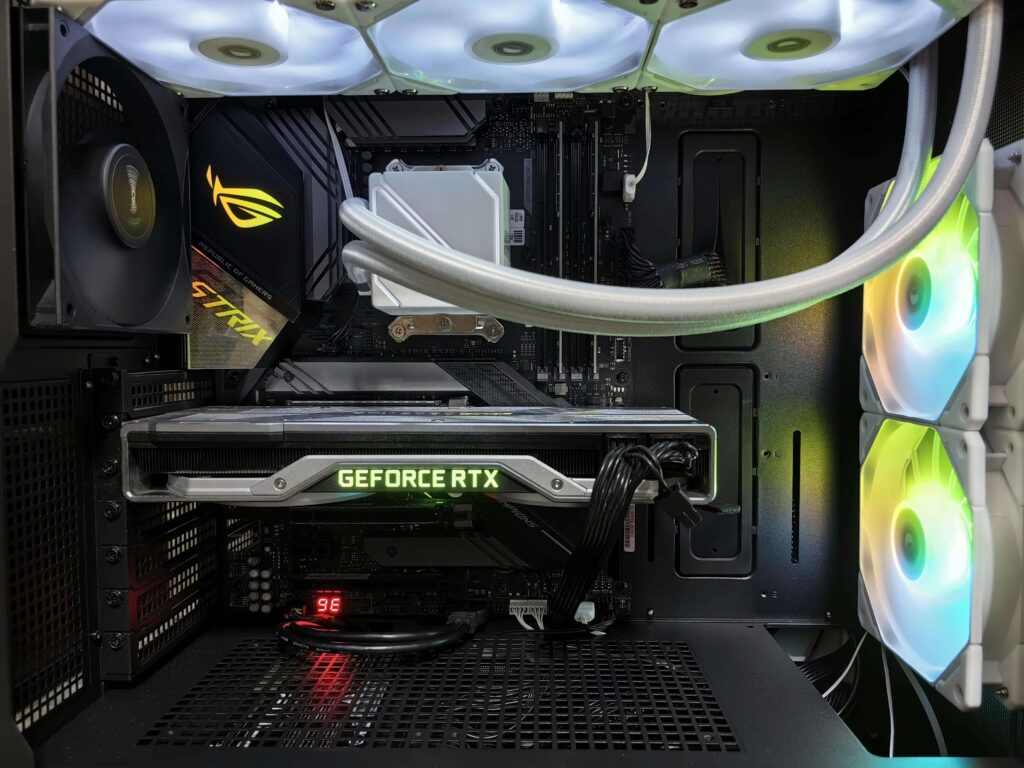
10. Price and Value
Finally, create a budget that strikes a balance between the performance and features you want and affordability. Examine laptops that fall within your budget by contrasting features, user opinions, and warranty details. Consider elements like long-term dependability, customer service, and building quality when determining value.
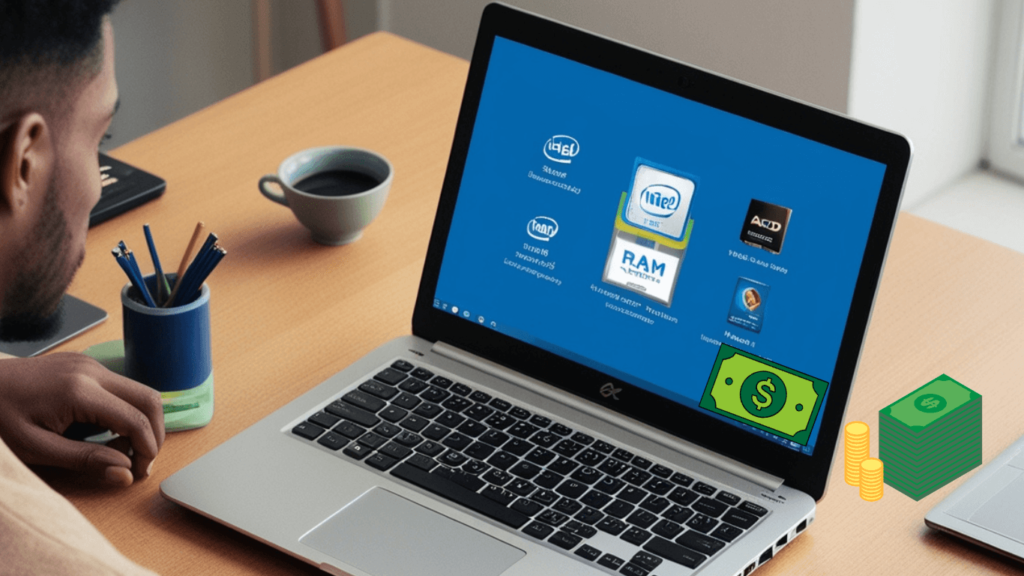
In summary, the process of choosing the ideal laptop entails assessing a number of variables to make sure it suits your particular requirements and preferences. You can choose a device that will increase your productivity, enjoyment, and creativity by considering factors like build quality, operating system, storage capacity, battery life, portability, performance, operating system, graphics capability, and overall value.
When making a purchase, always remember to do your homework, read reviews, and take into account your unique use cases. With this information at your disposal, you should be able to select the ideal laptop that fits in with your digital lifestyle.

